SingaporeMotherhood | Baby & Toddler
August 2021
The Ultimate Guide to all your Baby Sleep Questions, answered by a Sleep Expert

How did a trained accountant become a baby sleep expert who counsels and helps over 100 sleep-deprived parents a year? Zoe Chu, 41, Baby and Adult Sleep Expert and founder of Sleep Supernanny shares her story — and answers those baby sleep questions we all have. It’s a long read, but worth it, so do bookmark this and come back to it whenever you need to.
The fresh-faced and cheery mum of four had her first brush with baby sleep in New Zealand, after her twin boys (now 15) were born. “Brutal” is how she describes that time. “Sleep deprivation took a toll on me emotionally and mentally. I didn’t enjoy motherhood and it wasn’t what I envisioned it to be.
A neighbour who visited her asked, “Why don’t you explore sleep training?” Zoe had no idea what sleep training meant then, but figured her neighbour knew something she didn’t. After all, “she (the neighbour) was a well-rested and happy mommy of two while I was a tired and cranky mommy of two.”
Zoe read, researched, and then implemented what she had learnt. Success! The twins began to sleep well and through the night. When the family moved to Singapore and Zoe gave birth to her third son (now 10), she started blogging about her sleep training journey. “Other parents found my blog and that’s how I got into this business.”
To date, Zoe’s “Sleep Baby Sleep five-step system” has helped thousands of families get better rest, making her the perfect person to answer all our baby sleep questions like “is sleep training the nth level of torture?”, “why does my stealth ninja walk out of the nursery never work?” and “if baby poops while sleeping, should I change the diaper?” and more. If you’ve wondered as well, read on for some much-needed sleep enlightenment!

How much sleep does my baby need?
This depends on their age:
0-3 months: 15-18 hours
Newborns sleep roughly eight to nine hours during the daytime and nighttime respectively.
3-6 months: 14-16 hours
Babies this age may sleep for six-hour stretches at night and settle into a set nap schedule.
6-12 months: 14 hours
Babies at this age may stop sleeping through the night because of separation anxiety. It’s fine to check on your crying baby but keep visits short and try not to pick him up. Instead, rub his back or sing a soothing lullaby to coax him back to sleep.
Is baby sleep training a bad thing?
It is not. It seems bad if you have no clue about it and attempt sleep training without educating yourself first. Would you drive a car on the road without going for lessons?

You need to educate yourself about fostering healthy sleep habits so your child can be a good independent sleeper for life. Your child relies on you to teach them good habits, just like they rely on you to teach them good manners and values. How can the important skill of learning to sleep well be considered bad?
What are parents’ most common misconceptions about baby sleep?
Some of the most common misconceptions about sleep training are that
- It is all about letting baby cry it out
- Sleep training is very rigid and follows a strict schedule
- Forget it if you have to send your baby to infant care
- You have to stop breastfeeding so that you can sleep train
- All the crying will affect the parent-child relationship
(See also: Think Your Child’s Snoring is Cute? Think again. It could be Paediatric Obstructive Sleep Apnoea (OSA))
How long does it take to get their babies sleeping through?
I have helped parents with three to four-month-olds sleep through within a week or so of implementing my Sleep Baby Sleep program system. The best-case scenario would be within one to two nights.
The one who learnt most quickly was a six-month old baby, after one night. She woke up but managed to resettle on her own in the middle of the night and slept through from 7:30pm to 7am.
The longest took about three to four months. The parents preferred the gentlest option. They still wanted to intervene and help the child to fall asleep – even for naps.

Has there ever been a failed case?
Yes, but thankfully the cases are few and far in between. Not all families are able to commit 100 per cent. That’s why I have a FREE 20-minute discovery call with parents before asking them to join my coaching program. It is important that all their doubts and concerns are addressed before they start the sleep program.
There’s this one particular case where the mum was exhausted, frustrated and depressed, but wasn’t able to follow through due to family circumstances. The grandparents and her spouse were not supportive of sleep training at all. She felt very alone in the journey.
It’s extremely important to get everyone on board, so they are on the same page when it comes to achieving the same goal for the child. If mum is the only one for sleep training and others keep doing their old ways, no sleep program will ever work!
When is the right age to start sleep training?
I started from the moment I brought my daughter (now 5) home from the hospital. For anyone else, it is when both parents are ready to commit to the sleep training journey.
(See also: Pregnant? Use this Pregnancy Checklist to Plan for the next 9 months)
My baby doesn’t fall asleep at the same time every night, what should I do?
Babies thrive on structure and will develop habits readily when they know exactly what to expect. A good way to do so is to establish a consistent bedtime routine, including a bath, massage and quiet time together with your little one. You could also use products specially formulated to soothe and relax babies, such as the Aveeno Baby Calming Comfort range.
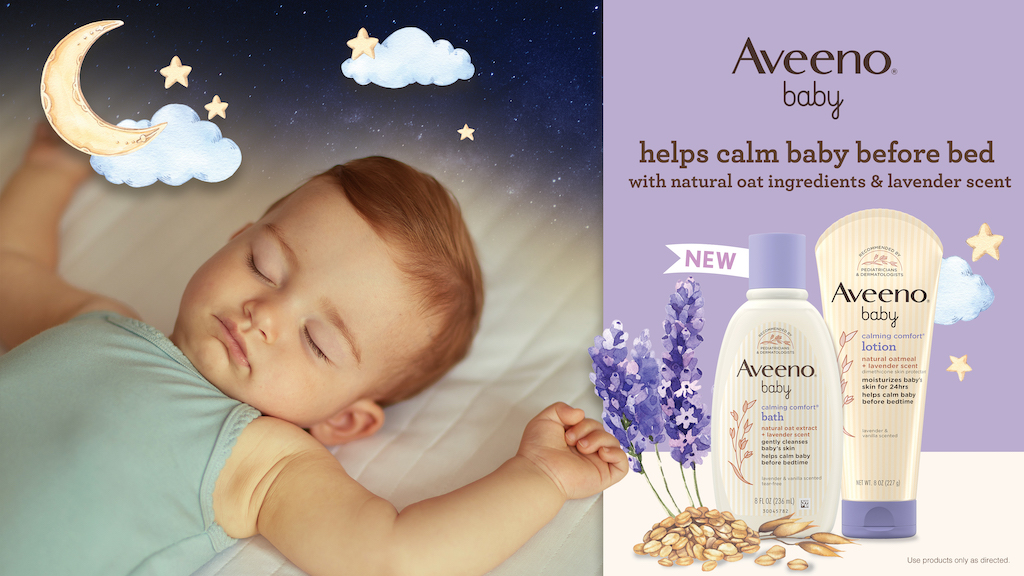
Why does my baby wake up when I put her down or when I try to leave the room (even if I am quieter than a ninja)?
Haha, the answer to this is very simple. Imagine falling asleep on your bed and waking up on your sofa. Would you be scared or alarmed? That’s exactly what happens to your baby when you attempt to do the ninja transfer. It will never work. They will definitely cry because of the change in sleep environment!
Similarly, why does my baby wake up when I sit down?
Same thing as to why it’s easier for you to fall asleep in a moving vehicle as compared to a stationary vehicle. There is something about a moving vehicle that makes people drowsy.
One thing to note is that when your baby falls asleep in motion situations, she isn’t getting the right kind of sleep. She isn’t getting the deep, restorative sleep that is so important for the development of her brain.
Only getting “motion” sleep is similar to the sleep an adult gets in the MRT or the (terrible) sleep you get on an airplane. We all get a better sleep when we can lay flat on our comfortable bed – which encourages our brain to get into that deeper sleep state, cycling through the various sleep cycles.
Books tell me to put my baby down “drowsy but still awake”. It never works.
If you put baby down drowsy but awake, you have done more than 50 per cent of the job for your baby.
The key to getting your child to sleep well is to allow your baby to fall asleep independently 100 per cent using their own skills.
Helping them to get to the drowsy state or helping them fall asleep is not your job in the first place.
If my baby poops while sleeping, should I change the diaper?
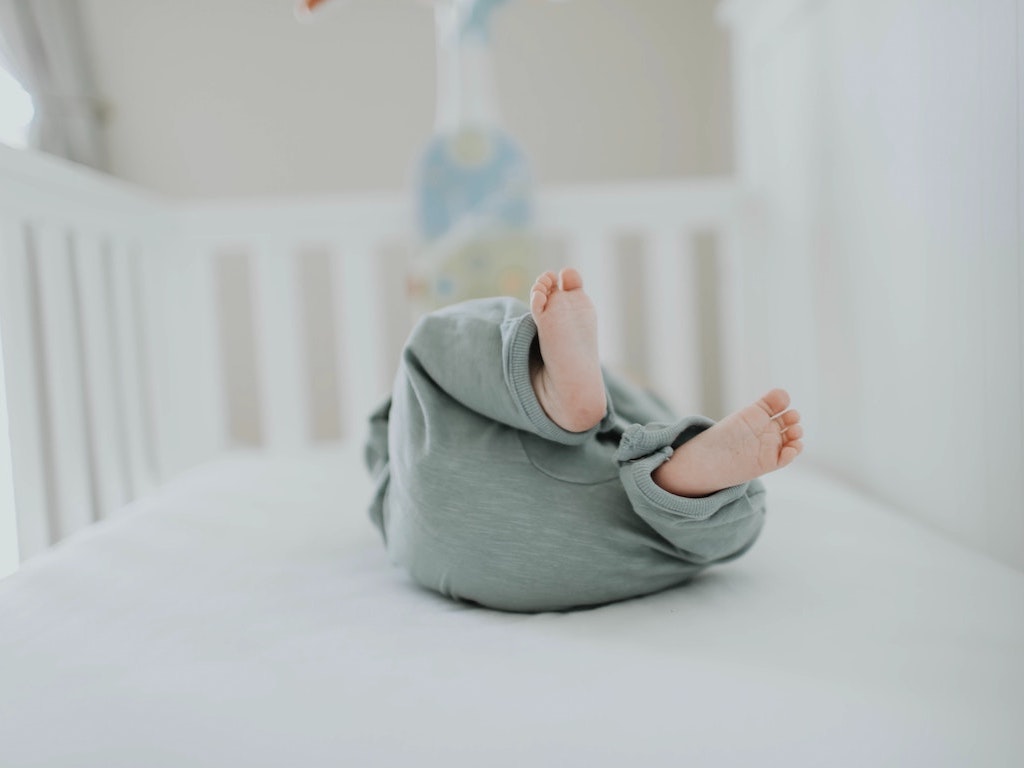
My babies were good independent sleepers so I would probably change my baby’s diaper. But if you are unsure, just let baby sleep and change when they wake up. It also depends on the timing. You wouldn’t want the poop to be on her skin throughout the night.
Should I wake my baby up to feed? If I do, it will be so hard to get her to fall asleep again!
This is a concern when you are just addressing the symptoms of the problems. The key is to foster healthy sleep habits and tackle the root cause of the problem. It is so hard to get her to fall asleep again because she doesn’t know how to fall asleep independently.
So to answer this question with our long term goal in mind – which is to get our child to sleep well – yes. If your baby is due for a feed, you should wake her up so baby gets full feeds during the day rather than snacking and waking up at night to drink when they should be sleeping for longer stretches at night.
(See also: 5 things every New Mum should do to Heal Well after Giving Birth)
People say that if I feed my baby formula, my baby will sleep longer.
It’s a myth. I breastfed my two youngest children exclusively and they could still sleep for long stretches and through the night eventually after four months.
What’s the best sleeping position for my baby to get her to sleep longer?
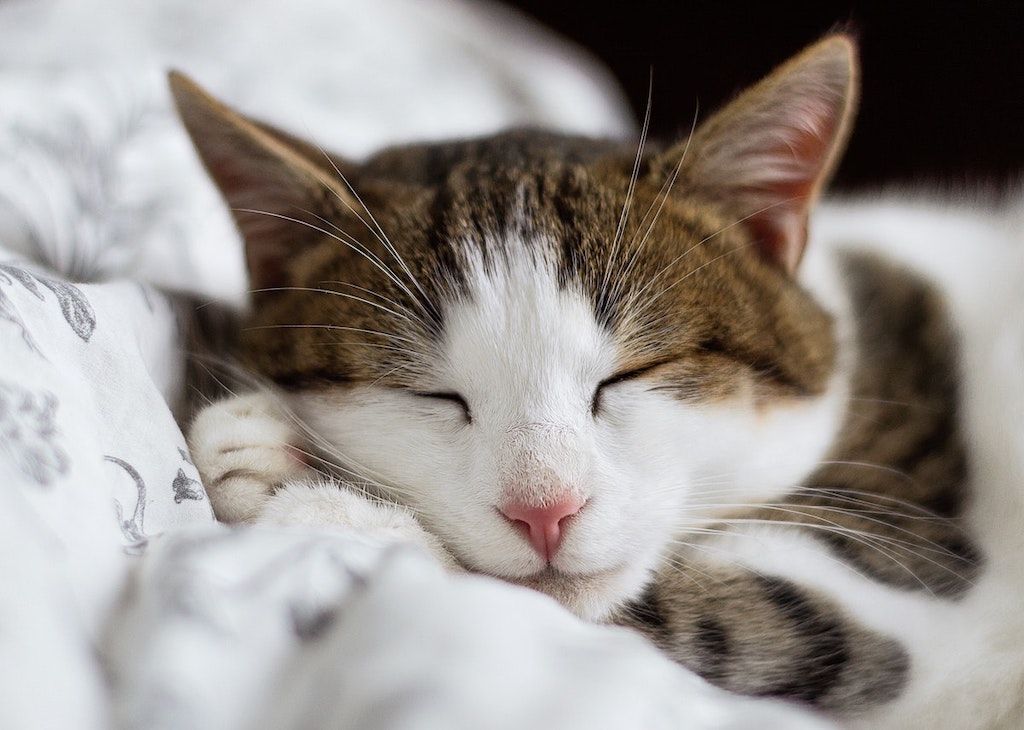
Sleeping on their back is the safest. But once your baby can roll over and prefer to sleep on their tummy, just allow your baby to find his/her favourite sleeping position. Keep the cot clutter-free and safe to prevent Sudden Infant Death Syndrome (SIDS).
People say that babies sleep better when swaddled but it’s so hot in Singapore.
I don’t necessarily agree with this statement. Usually swaddling is only effective for the first eight weeks. My girl didn’t want to be swaddled by the time she was almost six weeks old. If you choose to swaddle, make sure the material is light and breathable and that the room is and cool and well-ventilated to prevent overheating.
Due to the Moro reflex of newborns, swaddling helps create a womb-like environment by restricting your baby’s movements. It reduces startling and often stops Moro reflex completely because the baby feels safe and can’t extend their arms out as they usually do.
But if you find that your baby wants to break free, then we should respect that and allow our babies to discover their limbs and perhaps even use their fists and hands to regulate themselves.
How will I know if my baby is too hot while sleeping?
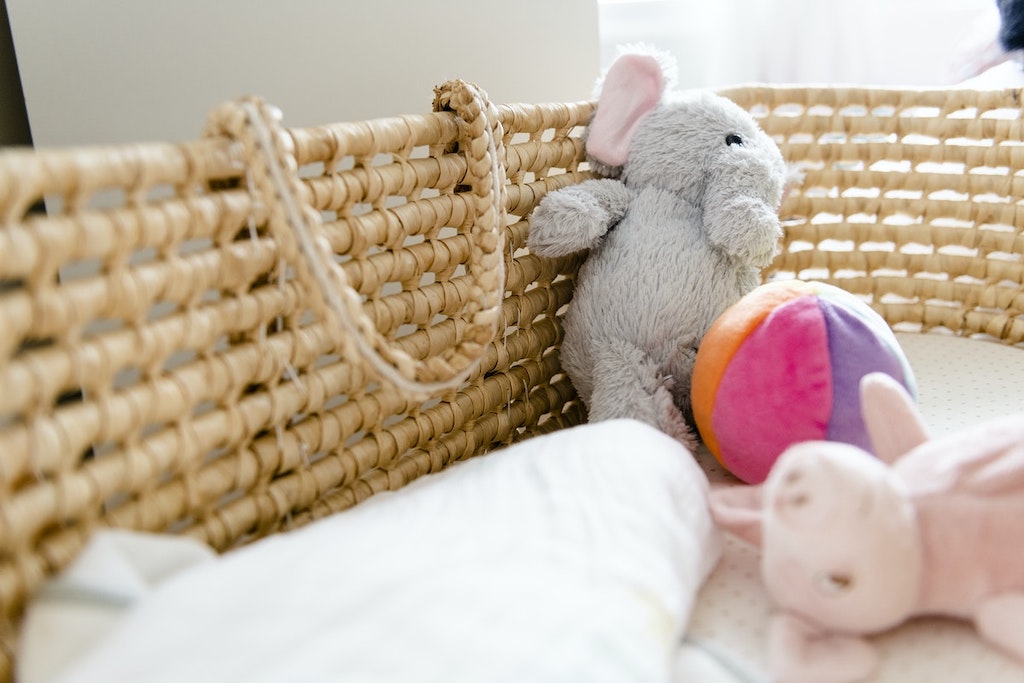
Check and touch the back of baby’s neck to make sure that baby is not sweating or feel too cold. Ideally, the room temperature should be around 22 to 25 degrees Celcius. If you don’t use the air-conditioner, make sure the room is well ventilated with the fan on.
What is your baby sleep advice on:
Co-sleeping
I am not a big fan of co-sleeping because it doesn’t promote sleep independence. Of course, to each their own. If it works for you and your family please, by all means, keep practising that.
Pacifiers
A pacifier is a sleep prop. If your child needs it to fall asleep then chances are when it drops out, and your baby wakes up crying in the middle of the night, they are looking for it and need your help putting it back for them. If you don’t mind this broken sleep for you and your baby, then you can continue using the pacifier. My advice to my clients is always to get rid of the pacifier if they know it has become a sleep prop.
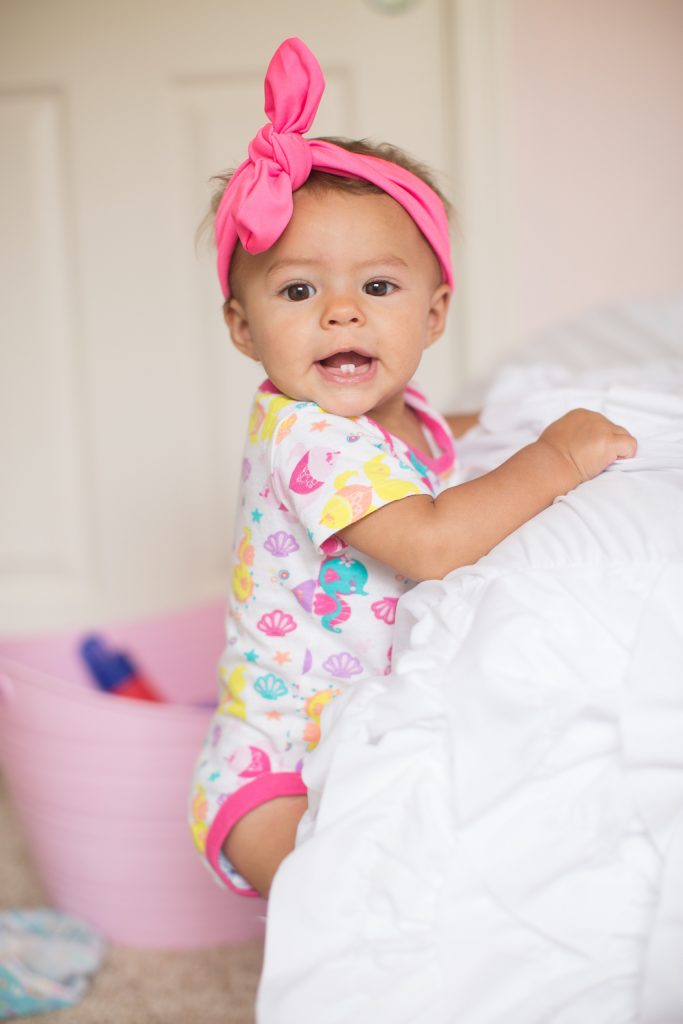
Teething
It is a myth that teething disrupts sleep. Teething always gets blamed when our babies are not sleeping well. It’s not the main reason why they are not sleeping well. Usually, sleep associations and over tiredness are the real reasons why babies wake up multiple times at night.
I have discussed this with multiple parents (some of whom are dentists) and my husband who is a dentist. All confirm that teething does not disrupt sleep. Now do some kids get grumpier or fussier sometimes when they get teeth? Totally.
If you are concerned about your child’s teething, give your child teething toys or teething gel during his wake time. Chewing on teething toys will help with their itchy gums. If your baby needs some comfort, of course you can go in to comfort them but just make sure your baby doesn’t fall asleep in your arms or they will need to be picked up all the time. Just continue to let your child self settle on his own.
Follow your PD’s recommendation when it comes to teething but do not begin to assist your child in falling asleep.
Holidays and vacations
Allow your child to nap even on the go. If you are going to be sightseeing, try to get your child to nap in the stroller or the carrier. Offer naps at the normal nap times.
Keeping your baby awake for longer than they are supposed to be is a recipe for disaster and they will start getting overtired and cranky or too hyperactive to be able to fall asleep easily or stay asleep. Consistency in giving them their naps will help them during holidays.
If naps are not even possible at all, keep the sleep environment as familiar as you can. Bring your child’s favourite sleeping toys as well as their bedsheet to imitate their home sleep environment. It will help them feel more secure in the new sleep environment of the hotel or motel.
(See also: 12 Postnatal Nutrition Tips for New Mums (+ Bonus Recipe!))
My Asian mum says to do one thing, the baby sleep books by Western authors say another. How can I reconcile these two different styles?

That’s really why sleep training is still frowned upon or met with much confusion in many parts of Asia. Our respect for our seniors and their old school methods of child-raising makes it difficult to challenge societal norms.
It’s just like the use of technology; our elderly may not enjoy using it at first. But once we educate them on how easy it is and how the desired outcome is so much better, hopefully the older generation will also be willing to learn the new ways of doing things, including sleep training. The key is to educate them that there is another way if the current way is not working out for you.
You can also get them to watch some of my video testimonials that my clients have given me involving their mothers or their mothers-in-law. Typically, when the elder generation sees endorsement and approval from their peers, they are more willing to accept and give it a try too.
Does sleep training work for babies with special needs?
I believe so, even though I haven’t personally sleep-trained one. All babies need to learn healthy sleep habits because that’s what sleep training is all about.
What’s your best baby sleep advice for parents?
As a former mom-bie, I just want to say that if sleep deprivation has started to take a toll on your mental and emotional well-being, it’s time to do something about it. Why keep struggling when you know there is a way to overcome this? The only way to stop your struggles once and for all is to educate yourselves. Follow a system that is simple, proven and easy to follow.
You just need to understand the science of sleep, prepare the ideal sleep environment, establish age-appropriate schedule, develop a sleep plan, and teach your child the art of self-settling.
Remember, the change you resist is the growth you’ll miss!”
Featured image: mistique jassu on Scopio
Featured image:
All content from this article, including images, cannot be reproduced without credits or written permission from SingaporeMotherhood.
Follow us on Facebook, Instagram, and Telegram for the latest article and promotion updates.





